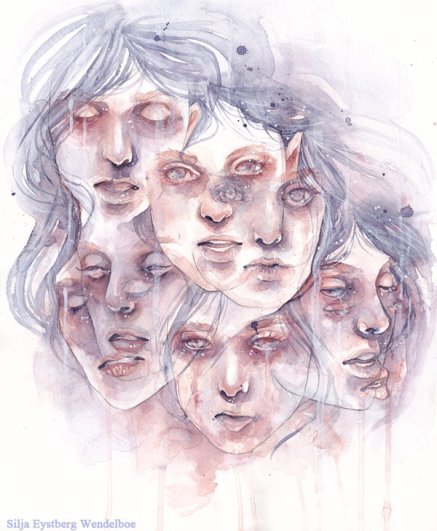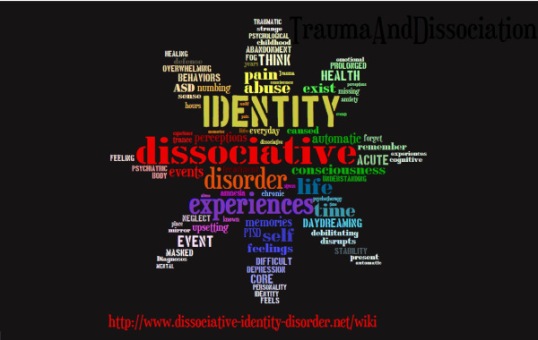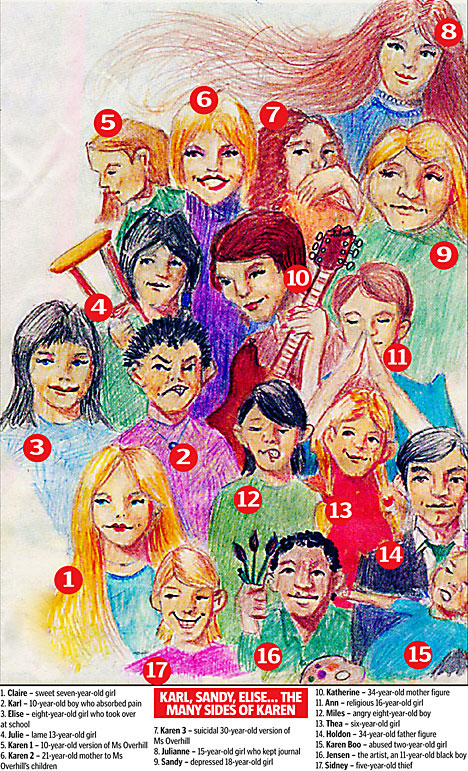Many years ago, when training for my existential psychotherapy degree, I volunteered with a charity in West London, working primarily with women and girls who were affected by all forms of gendered violence. The charity provided a holistic response to these women and girls and helped to restore and sustain their mental health and well-being. I worked on the helpline as their Helpline Support Worker, a few hours, every Saturday morning. It wasn’t easy, and in fact looking back, it was probably one of the more challenging roles I took on, especially so early in my counselling training. Still, I am appreciative of the experience, as it taught me a lot, and many things continue to stay with me till today.
One of the most important things I learned was how violence can affect the psyche and our souls.
Many of the women I spoke to had been assaulted in many deep and hurtful ways; the effect of which, left a wound, so profound, it affected everything they now did.
‘”The term “violence against women” means any act of gender-based violence that results in, or is likely to result in, physical, sexual or psychological harm or suffering to women, including threats of such acts, coercion or arbitrary deprivation of liberty, whether occurring in public or in private life.” The UN Declaration on The Elimination of Violence Against Women, 1993 say that “‘Gender-based violence against women’ …violence that is directed against a woman because she is a woman, or that affects women disproportionately.’”
I worked with the charity for almost two years and not only did it offer me much learning, it also opened my eyes to things that I would never have known otherwise. I learned a lot about violence and trauma and its devastating impact. I learned that violence can leave wounds on one’s soul and that these wounds never show themselves physically on the body but they are deeper and more hurtful than anything that bleeds. And sometimes, because these wounds are hidden as such it is also harder to convince others that one is hurting and suffering inside. It becomes one’s hidden pain and in some cases, one’s hidden agenda. Sometimes these wounds may also result in Post Traumatic Stress Disorder (PTSD) but that’s a whole new huge subject which I shall leave for another day. Today, I want to talk about the splitting of the psyche, also known as Dissociative Identity Disorder (DID) and formerly known as Multiple Personalities Disorder.
Dissociative Identity Disorder can be defined as the presence of two or more distinct identities or personality states (each with its own relatively enduring pattern of perceiving, relating to, and thinking about the environment and self). At least two of these identities or personality states recurrently take control of the person’s behaviour.
Although the appearance of this definition means that DID now has clear international criteria, there are still mental health professionals who dismiss it as a result of hysteria or, worse, a complex web of lies. The worst is when families and friends of the affected person think they are making it all up and are living in cloud cuckoo-land! But they aren’t. It’s real. Very real.
So what is dissociation?
MIND, the well-known mental health charity in the UK describes this very well:
Your sense of reality and who you are depend on your feelings, thoughts, sensations, perceptions and memories.
If these become ‘disconnected’ from each other, or don’t register in your conscious mind, your sense of identity, your memories, and the way you see yourself and the world around you will change. This is what happens when you dissociate.
It’s as if your mind is not in your body; as if you are looking at yourself from a distance; like looking at a stranger.
For most of us time is an organising principle that offers essential structure to our lives. It is a container that allows us to distinguish present from past, and future experience. Imagine what it would be like if you did not know what time it was right now, or where you needed to be!
But when one experiences dissociation, time is distorted and at a fundamental level, it disrupts and distorts one’s essential sense of identity.
We all have periods when we feel disconnected. Sometimes this happens naturally and unconsciously. For example, we often drive a familiar route, and arrive with no memory of the journey or of what we were thinking about. Some people even train themselves to use dissociation (i.e. to disconnect) to calm themselves, or for cultural or spiritual reasons. Sometimes we dissociate as a defence mechanism to help us deal with and survive traumatic experiences.
There are five known types of dissociation:
- Amnesia
This is when you can’t remember incidents or experiences that happened at a particular time, or when you can’t remember important personal information.
- Depersonalisation
A feeling that your body is unreal, changing or dissolving. It also includes out-of-body experiences, such as seeing yourself as if watching a movie.
- Derealisation
The world around you seems unreal. You may see objects changing in shape, size or colour, or you may feel that other people are robots.
- Identity confusion
Feeling uncertain about who you are. You may feel as if there is a struggle within to define yourself.
- Identity alteration
This is when there is a shift in your role or identity that changes your behaviour in ways that others could notice. For instance, you may be very different at work from when you are at home.
Some of the effects of dissociation could include the following:
- gaps in your memory
- finding yourself in a strange place without knowing how you got there
- out-of-body experiences
- loss of feeling in parts of your body
- distorted views of your body
- forgetting important personal information
- being unable to recognise your image in a mirror
So what causes dissociation? The answer I’m afraid isn’t a simple one.
Often the causes are complex.
There have been lots of debate and research that show childhood abuse being the predominant factor in causing dissociation. Studies show that a history of trauma, usually abuse in childhood, is almost always the case for people who have moderate to severe dissociative symptoms. But not all trauma survivors have a dissociative disorder, so the relationship is not one of simple cause and effect. A fuller understanding comes from looking at your childhood relationship with your parents or guardians. If the relationship was insecure and you were abused, then you were, and are, more likely to use dissociation to protect yourself from the trauma. The combination of an insecure relationship, trauma and dissociation can result in a complex dissociative disorder.
You may remember that sometime ago there was a documentary and many articles written about Karen Overhill, a woman who developed multiple personalities as the result of being abused as a child has sketched her alter egos — all 17 of them!
Karen took on a range of personalities to escape the trauma, such as Sandy, 18, a depressed binge eater, and Jensen, an 11-year-old black boy who drew the sketch. She had been abused by her father and grandfather during her childhood. So Karen’s imaginary selves aged between two to 34 were ‘created’ as such to bear the brunt of the abuse.
Is it not truly amazing what our brains/minds can do to help us cope with the severest of trauma?
I think it is.
I remember talking to one of my previous clients on the phone who was initially her 40-year old female self with me when suddenly there was a pause in our conversation. After about 5 minutes or so a voice belonging to a little girl, made its appearance. For a minute I thought her daughter or a child had taken the phone away from her to speak to me. But in reality, it was the same 40-year old self that had split/dissociated. It is hard to describe what the felt like but it was a very moving experience and I don’t doubt that I will always remember that conversation that took place along with the child’s voice, the 40-year old’s voice almost simultaneously co-existing and holding on to the fact that this is one and the same person!
The aim of any therapist working with dissociation is to increase the connection between your client’s feelings, her many split selves, feelings, thoughts, perceptions and memories and to help the client develop a sense of empowerment by integrating these selves and trying as much as you can to help bring her into the present sense of self and time. This will help to make her feel more ‘whole’ and reduce her ‘internal chaos’. And when this is reduced, there will be less disruption in her life.
Any capable and experienced therapist wanting to working with such a client group should be well versed in DID and familiar with trauma work, best practice and the many other factors resulting from dissociation, self-harming being one. However ultimately whether the therapist has herself experienced dissociation is irrelevant. What is most important in ANY successful therapist-client connection is the relationship between the two people. It’s the relationship that heals a slogan psychotherapist Yalom claims as his ‘professional rosary’ and is something I believe in too. Ultimately, it is the relationship that heals, and less of the technique.
If, for some reason, you are unable to access a counsellor or any form of psychological therapy there is something you can do yourself that can help. Start writing.
Keeping a journal, a blog, a diary or just a simple notebook can help to improve connections, and (in DID) awareness and cooperation between identities. It can include the writings or artwork from any part of your dissociated self. Writing can help you express your inner turmoil and deal with what is going on. Don’t worry about it needing to make sense for often it will not. Besides, life for most of us, and for me at least, does not make sense the majority of the time so I would not be too worried about that!
There are also grounding techniques you can use which keep you connected to the present, can help you avoid feelings, memories, flashbacks or intrusive thoughts that you can’t yet cope with. The many techniques include breathing slowly, walking barefoot, talking to someone, touching something and sniffing something with a strong smell. Meditation can be very useful. Just find a safe space where you live, close your eyes, and concentrate on the pattern of your breathing. How it feels to inhale and how it feels to exhale. Try this, even if only for 5 minutes a day, and slowly if you can, increase the duration.
If you often lose time due to dissociation, try and get a watch with a day and date on it.
And finally remember that you are not alone. There many people who experience dissociation and many more who can help you with it.
Some organisations, for example PODS (Positive Outcomes for Dissociative Survivors), provide private online forums and communities where you can talk to others and share your experiences. Also, see How to stay safe online.
Other useful contacts include:
Mind Infoline
0300 123 3393 (Monday to Friday 9am to 6pm)
info@mind.org.uk
Details of local Minds and other local services, and Mind’s Legal Advice Line. Language Line is available for talking in a language other than English.
Clinic for Dissociative Studies
clinicfordissociativestudies.com
Accepts NHS referrals. Website has useful information about dissociative disorders.
Directory and Books Services (DABS)
01255 851 115
dabsbooks.co.uk
For survivors of childhood sexual abuse.
European Society for Trauma and Dissociation
estd.org
Includes links to online information on psychological trauma and dissociative disorders.
First Person Plural
firstpersonplural.org.uk
Support and information for people who experience complex dissociative distress conditions, and their family and friends.
International Society for the Study of Trauma and Dissociation
isst-d.org
PODS (Positive Outcomes for Dissociative Survivors)
0800 181 4420
pods-online.org.uk
Information and crisis cards for people who suffer from a dissociative disorder.
The Survivors Trust
01788 550 554
thesurvivorstrust.org
Lists local specialist organisations dealing with sexual abuse and violence.
Trauma and Abuse Group (TAG)
tag-uk.net
Details of UK organisations providing or listing counsellors or therapists.
End Violence Against Women
http://www.endviolenceagainstwomen.org.uk
Million Women Rise
http://www.millionwomenrise.com
UN Women
http://www.unwomen.org/en/what-we-do/ending-violence-against-women
These are all very good organisations and can provide excellent and helpful support/advice should you or your family/friends need it.
In the meantime, take care, and be kind to your-selves – all of them.



What a complex condition but very well explained in this blog and no doubts will be quite an eye opener and source of support for many.
LikeLiked by 1 person
Thank you Hari, much appreciated. I do hope it does support those who may be affected.
LikeLike